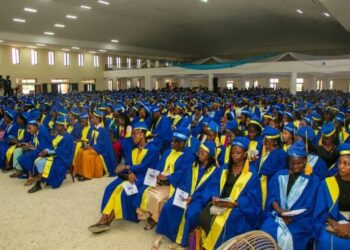The World Bank through a report has raised concerns over South Africa’s early education sector, warning of a critical crisis that could have long-term effects on the country’s development.
According to the latest report, significant gaps in foundational literacy and numeracy skills among young learners threaten to undermine future economic and social progress.
The report highlights that only a fraction of South African children are achieving age-appropriate educational milestones, with systemic challenges such as inadequate infrastructure, insufficient teacher training, and limited access to resources being cited as contributing factors.
“Early childhood education is the foundation of human capital development,” the report states, emphasizing the need for immediate and sustained intervention to reverse the alarming trend.
Education stakeholders, including policymakers and civil society organizations, have called for urgent reforms to address these issues. Suggested measures include increased investment in teacher development, curriculum adjustments to focus on foundational skills, and better resource allocation for underprivileged communities.
The World Bank’s findings come at a time when South Africa is grappling with broader educational inequalities, raising questions about the country’s ability to meet its long-term developmental goals. The report has sparked widespread discussions, with education experts urging collective action to secure the future of the nation’s children.
The Department of Basic Education has yet to respond to the findings, but analysts say that bold policy shifts will be required to tackle the challenges outlined in the report.



















































































 EduTimes Africa, a product of Education Times Africa, is a magazine publication that aims to lend its support to close the yawning gap in Africa's educational development.
EduTimes Africa, a product of Education Times Africa, is a magazine publication that aims to lend its support to close the yawning gap in Africa's educational development.